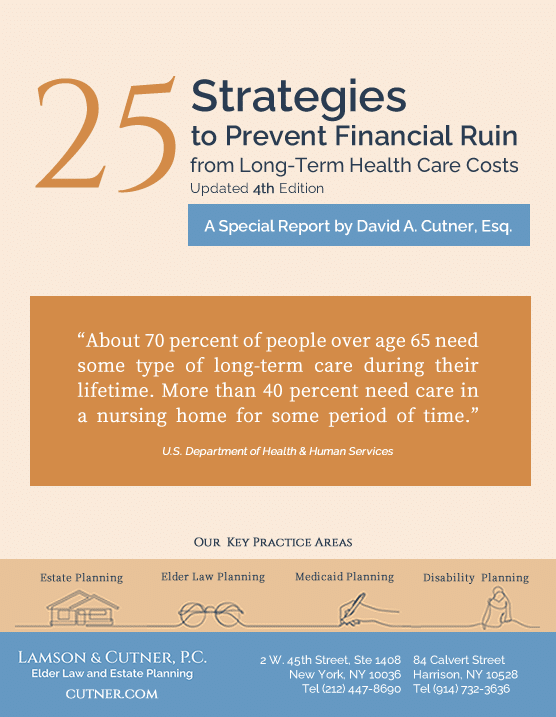This is Strategy #21 from Lamson & Cutner’s publication, “25 Strategies to Prevent Financial Ruin from Long-Term Health Care Costs.” Click here to see the other strategies.
Streamline your financial affairs. If you apply for nursing home care either now or in the future, Medicaid will request detailed information about your prior financial transactions. Every one of your banking and investment accounts that was open at any time during the “look back” period will be scrutinized. They all need to be documented on your application. Medicaid will want to see if you transferred any of your money or assets to others.
That means if you have many accounts, preparing your application becomes a lot more complicated and time-consuming for you and your attorney. It’s likely to increase the amount of your legal fees. Many banks offer gifts and other incentives to open an account. Some people create numerous accounts, even though they may not have a substantial amount of money, or adequate financial justification. If you don’t need the additional accounts for a good reason, close them. When it comes to dealing with Medicaid, the cleaner and simpler, the better.
Also, the process of gaining approval for Medicaid benefits, and protecting your assets, will be considerably faster and easier if you organize your records. In particular, this includes bank accounts, IRA’s, annuities, stocks and bonds, certificates of deposit, Keogh plans, money market and mutual funds, insurance policies, tax returns with 1099 and K-1 forms, pension information, and Social Security award letters.
The best system is to place each of the last five years’ of records from each financial institution in its own file. Arrange each category of statements chronologically, from the oldest to the most recent.
If you do nothing else, then at least throw all statements and receipts for each year in a box or folder. This way you’ll have a basic annual level of organization, and have all of the documents that may be needed later on.
visit our key practice areas


